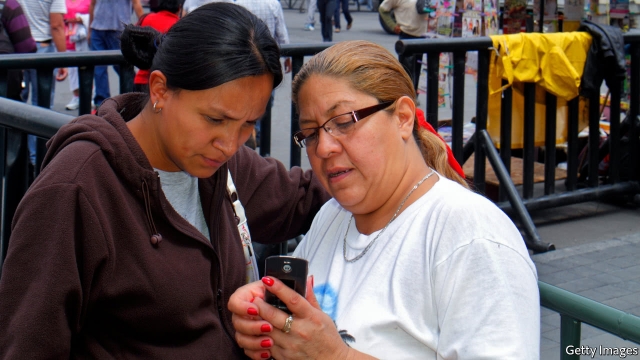Mexico switches its government-operated wholesale mobile network
Earlier this year, a White House memo stated that the U.S. government should establish and operate its own 5G mobile network, while JAWS declined. The reason given is national security. Huawei’s telecommunications equipment manufacturer Huawei was used as a strategic threat in the memorandum. Many people criticize this idea of large-scale national intervention, and this idea was quickly crushed. To the south of the border, Mexico is experimenting with a more sensible version of a joint venture that may be suggested by US officials: wholesale mobile networks.
Red Compartida (Spanish for “Shared Network”) went live on March 21. The motive behind the world’s most ambitious telecommunications project is not national security. Instead, Mexico is trying to create three feats by expanding mobile coverage, lowering prices, and creating a viable business environment for the next generation of wireless mobile Internet 5G.
The project is a $7.2 billion public-private partnership and part of the country’s telecommunications reforms in 2014 (involving Nokia and Huawei in Finland). The government will provide 700MHz band and 18,000km long fiber optic cable. Altán Redes is a privately held consortium that has won the right to network construction and will almost assume the entire bill. It cannot sell Internet services to customers, but must provide products to other companies. The government is checking fair and signing each transaction.
There is a great need for joint ventures and broader reforms. The internet is slow. In the OECD of the Wealthy Country Club, mobile phone penetration has remained at the lowest level. In 2016, Mexico had only 60 mobile broadband subscriptions per 100 mobile customers. This is partly because many Mexicans are poor, but also because existing service providers do not provide services covering most parts of the country. Red Compartida will fill this gap. It now covers 30% of the population; it will cover 50% by 2020 and 92% by 2024.
Other factors in telecommunication reform have caused Mexican mobile broadband prices to fall from 30% in the 2013 OECD average to 30% in 2016. However, the real wholesale Christmas costumes competition remains elusive. América Móvil, the giant telecommunications company owned by the US local tycoon Carlos Slim, still controls about 70% of the mobile broadband market. The other two companies, Movistar and AT&T, own and operate their own mobile networks. Mobile virtual network operators mean that companies that rent infrastructure from other companies have a market share of 1% in Mexico, while most markets in Europe and North America share 10-15%.
Red Compartida will change this again. As an independent wholesaler, Altán is not interested in getting new participants out of the market and is obliged to provide services for everyone. Deputy Minister of Telecommunications Edgar Olvera Jiménez expects the MVNO will account for 5% of the mobile market in two to three years, thereby reducing costs. The government believes that the cost of Internet per megabyte is almost immediately reduced by half.
So far, the network does not have any customers, but Eugenio Galdón, vice president of Altán, said several companies have signed contracts and will publicly announce their entry into the market after network testing is completed. So far, the three major players have resisted joining the network, but they may use it in the future to reach parts of Mexico that their own networks cannot cover.
Red Compartida’s infrastructure is built for easy upgrade to 5G. Mexico will be completed by the end of 2019, Mr. Olvera said. 5G is called high speed connection, low response time and flexibility, which will help realize the promise of IoT because the connected devices are called. However, the wholesale Christmas costumes business case for building an independent private network is not convincing. The infrastructure cost of 5G is much higher than its predecessor. It uses high-frequency radio waves and it is difficult to penetrate objects. Therefore, operators need to install more antennas and connect them to fiber optic cables. Red Compartida will share the cost (as soon as Altán has customers), making it easier to manage.
The network is also at risk. The obvious point is that Altán’s behavior is like old telecommunications monopolies and the lack of funds. This is the case with some fixed wholesale networks. For example, the average speed of Internet connections in the national broadband network owned by the Australian government lags behind most rich countries.
The Mexican government stated that the next step is to promote the network throughout the country. Mexico is one step ahead of all other countries: only a tiny Rwanda has previously established a wholesale mobile network. But Mexico cannot be the last one. The governments of several other countries, from Chile to South Africa, are considering simulating this idea. They will observe whether Mexico’s ambitious projects quickly accumulate satisfied customers.
